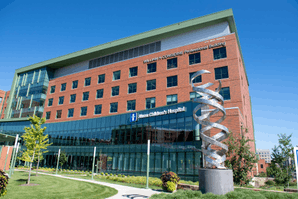Motility Program

A motility disorder, or dysmotility, occurs when the muscles and/or nerves in the gastrointestinal tract do not work properly. Symptoms of these types of disorder could include abdominal pain, nausea, vomiting and constipation.
The Motility Program at Akron Children’s is one of the few pediatric hospitals to offer a full range of state-of-the-art testing and treatment options.
The goal of the Motility Program is to provide a multidisciplinary approach to caring for your child. Our team of pediatric experts includes
- Neurogastroenterology
- Surgery
- Psychology
- Pediatric interventional radiology
This team will work to diagnose common motility conditions as well as more complex disorders in infants, children, and teens.
Department: 330-543-4488
Motility Program
Akron Children's Motility Program, AkronConsidine Professional Building
215 West Bowery Street
Level 6
Akron, Ohio 44308
Map & directions
More about this location...
Hours

What families are saying…
“We were devasted when another GI provider told us our son needed a feeding tube. After 7 months of treatment and no improvement, we found Dr. Shivani Gupta at Akron Children’s. We got in to see her right away, and she was remarkable! She familiarized herself with our son’s medical history, thoroughly reviewed his symptoms, gave us her undivided attention and addressed our concerns. She changed his routine, saving him from a very serious and unnecessary procedure. We couldn’t have asked for a more compassionate, kind, attentive and knowledgeable provider. She improved our son’s quality of life.”
— Roy's Mom & Dad
Conditions and Treatments:
Colonic dysmotility; dysphagia; gastroparesis; Hirschsprung disease; intestinal pseudo-obstruction; rumination disorder; severe chronic constipation
A to Z: Dysphagia, A to Z: Gastroparesis, Hirschsprung Disease
By using this site, you consent to our use of cookies. To learn more, read our privacy policy.




















